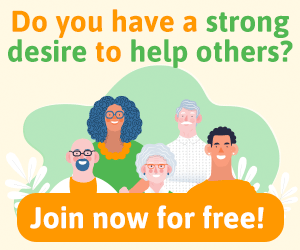Extending happiness to those around us is likely to make us happier, too. Sonia Vadlamani explores ideas for spreading love and happiness, and the positive payoff this can deliver.
Most of us wait for happiness to chance upon us, be it through a raise at work, finding love or a favorable event. Truth is, happiness is a choice and choosing to maintain a happy vibe constantly takes some dedicated effort and mental training on our behalf. However, what if it were easier to boost your levels of happiness by the way of simply spreading love and happiness around us?
Researchers agree that happiness moves in clusters through groups of people and communities. Indeed, in our technology-driven and screen-obsessed era, sometimes we forget that it’s not all about us and that we may need to put back the love and happiness we expect to receive from the world. Therefore, it’s ideal to ingrain the message that happiness begets happiness, as having a more content social circle ensures that our own psychological needs are met with greater ease.
Why spread love?
“When we feel love and kindness towards others, it not only makes others feel loved and cared for, but it helps us also to develop inner happiness and peace,” said His Holiness the 14th Dalai Lama. Indeed, spreading love and happiness can help us do better and feel better at the same time, as happier people are more helpful. Focusing on creating happiness for others also allows us to attract better outcomes for ourselves, inspiring us to follow our bliss and fulfill our purpose in life.

Spreading love to others helps ourselves find peace, too
Extending love to others can also aid us in resolving inner conflict and turmoil and letting go of resentment and hurt we may have harbored for a long time, enabling us to cultivate our authentic self. Spreading happiness is an effective way to counter negativity, avert hate and overcome prejudice through bridging our differences.
9 ways to spread love and happiness
“Spread love everywhere you go. Let no one ever come to you without leaving happier,” advocated Mother Teresa, the Nobel laureate renowned for her missionary work with the underprivileged.
Spreading happiness need not call for grand gestures or extravagant effort. In fact, committing to carry out random acts of kindness is one of the easiest ways to increase happiness around you, research suggests. Here are nine more research-backed suggestions for advocating love and happiness.
1. Strike up a conversation
Humans are wired to reach out and seek connections, and the inability to form fulfilling social bonds can create ‘social pain’. This can affect our behavior and outcomes in the same capacity as physical pain, according to Matthew Lieberman, scientist and author of the bestseller book Social. Yet, it can be difficult to start a conversation with strangers, even if you’re simply doing it with the intention to be nicer.
RELATED: How to keep connecting with strangers during the pandemic
Striking a conversation – be it in the form of a casual complement to a stranger or a healthy discussion with a group of like-minded individuals – can be the key to spreading happiness, as it can put others at ease and establish a connection. It can possibly also help you tap into the power of friendship. However, remember to indulge in positive communication and being respectful, especially when conversing with strangers.
2. Listen without judgment
Do you remember feeling supported and understood when you could vent your feelings without judgment and distractions from others? Indeed, offering someone our undivided attention and avoiding the temptation to jump in mid-flow to impose our perspectives can be an effective way of spreading love and happiness.
“Spreading love and happiness can help us do better and feel better at the same time. Focusing on creating happiness for others also allows us to attract better outcomes for ourselves.”
Sometimes, it helps to take a ‘helicopter view’ of a scenario and remind ourselves that everyone around us maybe going through a struggle of their own, unbeknownst to us. A withdrawn neighbor could be overwhelmed at work, a server who seemed preoccupied today could be dealing with adult bullying, or a friend who has lately been seeming reclusive might be trying to deal with their depression.
Practising mindful listening enables us to withhold snap judgments and view a situation from a different, more helpful vantage point. Also, nurturing an age-gap friendship can be a great way to broaden our perspectives and drop any unwanted, pre-conceived notions we may have, in addition to building a mutual support system.
3. Express gratitude
An attitude of gratitude can change our lives for the better, according to research. Expressing thankfulness and being appreciative of good things in our lives can help improve relationships with others, lower stress levels and enable better decision making.
Choosing gratitude also allows us to cultivate an abundance mindset and tap into our intuition with greater ease. There are several effective ways to practise gratitude, which include keeping a gratitude journal, using visual reminders, formulating gratitude affirmations or simply incorporating gratitude yoga into your daily schedule.
4. Be supportive
Our encouraging words and supportive behavior can create a butterfly effect on others, highlighting our ability to create a positive impact in their life. Practise offering constructive criticism whenever you wish to offer useful feedback, albeit in a compassionate manner.

A simple hug can spread kindness and love shutterstock/BRO.vector
Helping someone cope with holiday grief or somebody having a panic attack, being there for someone recovering from addiction are some of the ways of spreading love by being supportive. Indeed, the simple act of hugging can sometimes offer greater mental benefits than words of encouragement.
5. Indulge in small acts of kindness
While volunteering and charity require you to offer your skills and resources for furthering a good cause, there are several easy ways to choose kindness every day, most of which don’t demand a lot of time or effort on your behalf. Spreading love is possible through small gestures, like leaving a bigger tip than expected, holding the lift door open for others, or offering a nutritious meal to a lesser-privileged person.
6. Practise self-compassion
While we remember to acknowledge others’ needs and successes, we often forget to validate our own accomplishments. Spreading love and happiness becomes easier when you are kind to yourself and recognize your own worth fully well. Learning to embrace your imperfections and practising self-compassion is important for your well-being, as well as for spreading love around.
7. Stop worrying about others
Sometimes, we mistakenly identify excessive worrying and attachment to an outcome as love. However, worrying keeps us hyper-alert against signs of threat. Unfortunately, excessive worrying also thwarts creativity, messes with our goals and can possibly result in trust issues.
“Spreading love is possible through small gestures, like leaving a tip, holding the lift for others, or offering a nutritious meal to a lesser-privileged person.”
I hail from an Indian family with relatively modern values and an independent outlook, yet it was typical for my parents to worry about my future, life-choices, academic performance and career, etc. While they meant well and assumed that all the excessive worrying was a manifestation of their love for me, I noticed that whenever my parents worried over me, my stress levels would rise.
The first step in resolving this could be to stop misidentifying worrying as an expression of love, recognizing that it’s counterproductive, and could even lead to self-sabotaging relationships. I had to finally convince my parents that while I appreciated their kindness and caring, the weight of their worrying was far too burdensome and was adversely impacting my mental health.
8. Learn to relax
Have you found yourself juggling too many roles, or nearing a burnout, perhaps due to uncertainty fueled by the COVID-19 pandemic? The key to spreading happiness could lie in devising a better work-life balance and making relaxation a part of your daily schedule as well. Introducing mindfulness at work and taking regular short breaks can aid in boosting your productivity levels and enable improved stress management.
Reconnecting with nature periodically with something as simple as gazing at the stars, fishing or forest bathing can help you replace your worries with a sense of rejuvenation and wonder.
9. Learn a life skill (and then teach others)
Spreading happiness is possible by using learning and teaching to connect with like-minded people. In fact, learning contributes to happiness and is a powerful way to build a strong network of people and resources. Teaching an essential skill like performing first-aid or CPR, or sharing your know-how regarding a simple hobby like gardening or knitting could make you better equipped to seek and provide social support.
Takeaway: spreading love and happiness
In the words of Buddhist activist Thich Nhat Hanh, “Learn the art of making one person happy, and you will learn to express your love for the whole of humanity and all beings.” Indeed, researchers point out that happiness is a contagion that can pass from one person to another, through large social networks.
Since happiness is a collective phenomenon, spreading love and happiness can boost the well-being quotient for others as well as ourselves. •
Main image: shutterstock/BRO.image
happiness.com | The fine art of being: learn, practise, share
Are you a happiness.com member?
Join free now and:
■ enjoy our happiness magazine
■ share and support in our happiness forum
Altruism | Compassion | Happiness
Written by Sonia Vadlamani
 Fitness and healthy food blogger, food photographer and stylist, travel-addict and future self journaler. Sonia loves to write and has resolved to dedicate her life to revealing how easy and important it is to be happier, stronger and fitter each day. Follow her daily pursuits at FitFoodieDiary or on Instagram.
Fitness and healthy food blogger, food photographer and stylist, travel-addict and future self journaler. Sonia loves to write and has resolved to dedicate her life to revealing how easy and important it is to be happier, stronger and fitter each day. Follow her daily pursuits at FitFoodieDiary or on Instagram.






Join the conversation
You are posting as a guest. If you have an account, sign in now to post with your account.